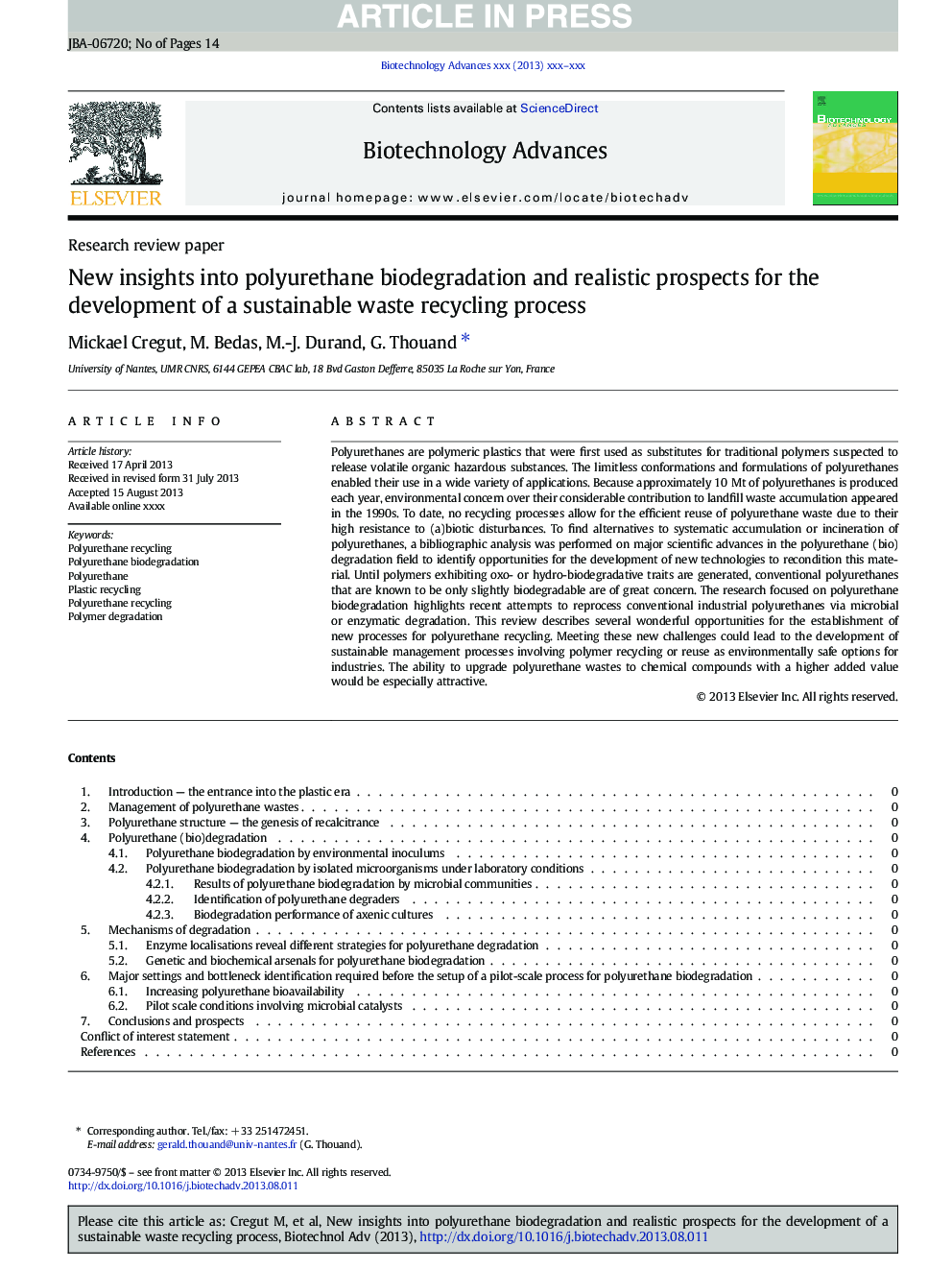| Article ID | Journal | Published Year | Pages | File Type |
|---|---|---|---|---|
| 10231584 | Biotechnology Advances | 2013 | 14 Pages |
Abstract
Polyurethanes are polymeric plastics that were first used as substitutes for traditional polymers suspected to release volatile organic hazardous substances. The limitless conformations and formulations of polyurethanes enabled their use in a wide variety of applications. Because approximately 10Â Mt of polyurethanes is produced each year, environmental concern over their considerable contribution to landfill waste accumulation appeared in the 1990s. To date, no recycling processes allow for the efficient reuse of polyurethane waste due to their high resistance to (a)biotic disturbances. To find alternatives to systematic accumulation or incineration of polyurethanes, a bibliographic analysis was performed on major scientific advances in the polyurethane (bio)degradation field to identify opportunities for the development of new technologies to recondition this material. Until polymers exhibiting oxo- or hydro-biodegradative traits are generated, conventional polyurethanes that are known to be only slightly biodegradable are of great concern. The research focused on polyurethane biodegradation highlights recent attempts to reprocess conventional industrial polyurethanes via microbial or enzymatic degradation. This review describes several wonderful opportunities for the establishment of new processes for polyurethane recycling. Meeting these new challenges could lead to the development of sustainable management processes involving polymer recycling or reuse as environmentally safe options for industries. The ability to upgrade polyurethane wastes to chemical compounds with a higher added value would be especially attractive.
Related Topics
Physical Sciences and Engineering
Chemical Engineering
Bioengineering
Authors
Mickael Cregut, M. Bedas, M.-J. Durand, G. Thouand,
